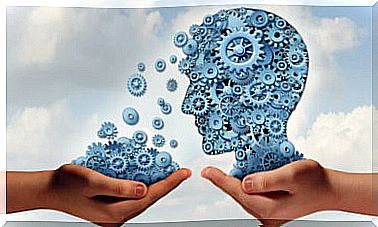The Disservice, A Double-edged Sword

The word favor comes from Latin and its lexical component favere which means ‘to favor, be favorable or be a supporter’. The original meaning is ‘help, support, benevolence’ and yet it is far from being similar to what is sometimes understood today. In opposition to the favor, there is the weak favor or the prejudice .
At first we might think that a disservice is simply a small or minor favor. However, this is not so. A disservice is one that is, indeed, intended to be a favor, but ends up being a problem . Let’s dig a little deeper.
Sometimes, without asking, we receive help from other people, seemingly altruistic or unexpected. This fills us with joy and gratitude towards them, who with their favors grant us a transforming power.
Of course, these situations can go unnoticed in a constant world of demands and demands in short terms. With this, we can forget to be grateful enough; especially with those people who, without attracting attention, move the wind in our favor, and not against us, almost justly .

Mediators between favor and gratitude
The lack of gratitude may be due to a cognitive distortion, one that makes the negative more salient than the positive. Selective abstraction or selective filtering is a distortion of thought that leads you to feel that the negative is more relevant and present than the positive.
However, in the same way that we are not usually grateful enough, it can also happen that we do not pay enough attention to those situations, which intentionally or not, lead us to situations that are not to our liking.
On the other hand, life is not a mathematically perfect algorithm; Therefore, actions or circumstances that initially benefit us may end up harming us. Most of the time they are unintended results, and indeed they can turn out to be a disservice, posing an obstacle to achieving our objectives.
On another plane, mental filters constitute different lenses through which we pass the information we receive or the thoughts we generate. We all have and generate them from the experiences we live , generally unconsciously. Mental filters or cognitive distortions will be the mediators of how grateful or not we will be for certain favors, whether they are required or offered.
Condescension, an identifier of the poor favors
At other times, and to our later amazement, some of the poor favors come from a place that is not well-intentioned and also become a favor for the person who “wants to help us.”
These situations are often involved in a condescending attitude. On the other hand, they may be motivated only by responding solely and exclusively to the benefit of the one offered. For this reason, the meager favors can be a double-edged sword.
Condescension occurs when a feeling of superiority is mixed with a misunderstood kindness towards the person you are supposedly trying to benefit. It may happen that someone is being patronizing with us, disguised as a favor – and that we do not ask – and that the consequences of it are harmful.
To prevent situations like this, which are far from being a valuable help for those who receive them , it is important to maintain a certain critical sense with the offers, even if they are of help, that we receive . On the other hand, if the damage has already taken place, we can do the following.
What to do with the disservice?
We can take into account the following guidelines:
- Excuse yourself. First, glimpse the cause of the situation or the disservice . If it is not our fault, do not assume it.
- Take responsibility. Understand that the lack of guilt does not remove responsibility. Yes, we are also responsible for what we accept.
- Evaluate the intention and let go. Assess whether the favor comes with ulterior motives.
After all, we are human and willingly or unwillingly, we are wrong. In this sense, humanism opens the doors to compassion and forgiveness. It is also important to remember that many of the disservices, even those with ulterior motives or malicious ones, take place from ignorance.

The favor, as a market product, is no longer a favor
When we speak of favor – the perfect favor – we usually refer to a disinterested, well-intentioned act of interest to the person who receives it. However, at present, it seems that a favor should be reciprocal, motivating people to do it by a pseudo-right of reciprocity.
Thus, if it is not returned, sometimes the favor acquires a false character of debt, with the inevitable negative consequences that this entails for the supposedly favored person. This from the outset is inevitably a disservice to the recipient. Moreover, sometimes the non-return of the favor places the recipient in inferiority, which is nothing more than a projection. This projection creates an illusory market for favors and debts, which can lead to negative feelings or resentment, especially if the “generous” does not receive a return.
By social conception, the favor is altruistic and disinterested. However, favors that at first glance do not seem interested -and they are- , under a condescending attitude -when we do not need them-, are more likely to turn into a disservice. Therefore, especially those situations that arrive unexpectedly, and from the outset it seems that they are doing us a favor , think twice . Remember that the poor favors, please have only their name.









